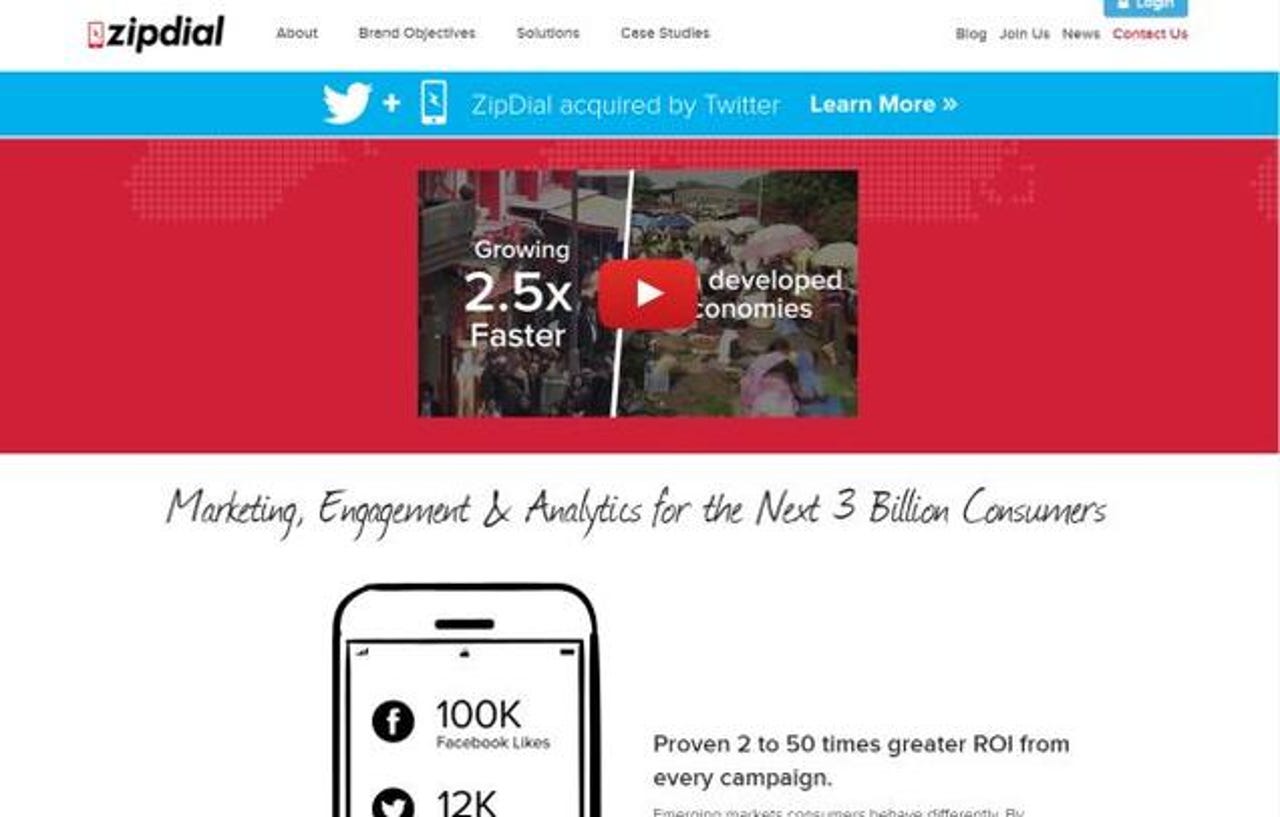Twitter rides the coattails of the 'missed call', acquires India's ZipDial

There is one simple reason why Twitter, a few days ago, paid anywhere between $30 million and $40 million for Indian marketing company ZipDial: While Twitter has 22 million followers in India, ZipDial, a relatively unknown brand, has a staggering 60 million.
The reason why ZipDial has been so successful is because it hangs its entire success so far on one quixotic aspect of Indian communications -- the "missed call".

Since incoming calls are free on most plans, a "missed call" allows the receiver to ring the originator of the call and chat with them without the person on the other line having spent a rupee.
This is such a popular strategy that many -- from grocery store clerks to illegal cricket bookies, to even banks responding to requests for bank balances -- run entire businesses built on the backbone of the missed call. According to GigaOm, one survey found that as many as 65 percent of India's 860 million mobile phone users employ this methodology versus calling up someone and speaking briefly.
In India, cricket is more popular than religion, which is pretty popular in itself. In fact, cricket is religion. So no doubt there's many a way to make a buck off of the sport. Enter ZipDial and the "missed call". Apparently, the service went from ordinary to sensational when it started sending people cricket scores via missed calls received from addicts of the game (read: Almost everyone in India.)
Apparently, when India played arch-rival Pakistan, ZipDial received an unbelievable 4 million calls. In a country where politics are taken almost as seriously as cricket, the service's efforts in an anti-corruption campaign spearheaded by a political firebrand netted it a tsunami of calls, 4.5 million to be precise, versus only 36,000 Facebook likes and 1,450 tweets.
Today, a whole welter of brands, personalities, and companies are using ZipDial's service to reach out to millions of people that social media has so far been unable to. Amongst them are multinationals such as Procter & Gamble, Coca-Cola, Pepsi, and Nestle.
This is a platform whose diverse clientèle and reach could not hope to be matched by a social media biggie. It is also more proof that when it comes to doing business in a foreign country, especially those with a large, under-served population, it is always a good idea to look around for local companies that have proved their mettle in a challenging environment with ingenious and cost-effective solutions, rather than reinventing the wheel.
They say necessity is the mother of invention. In India, she also has another child named "opportunity".